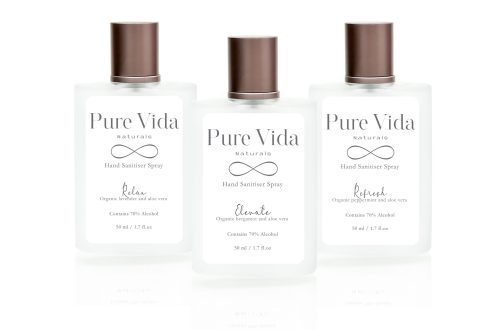Nutrition Notes: How to choose natural wines
Nutritionist Eve Kalinik explains how to find the producers with the purest product

January is usually the month for detoxing, dieting and being off the booze so, rather unexpectedly for this month’s page, I’m taking you momentarily back on the wagon – the organic, biodynamic and natural wine-wagon.
Let’s start with organic wines that you can now find in most major retailers and might assume equate to a more natural process or variety. Sadly, they may not be as pure as you think. EU-certified organic wines are permitted to include many chemical additives and a fair amount of sulphites unless they are deemed 100 per cent organic (rarely the case).
The means by which a wine can be certifiably organic is largely down to the growing processes – if the grapes are grown organically then this qualifies them as such, but any number of sulphites – or sulphur chemical compounds – can be added post-harvest so they’re not always as clean as they seem.
What are sulphites?
With most commercial wines, synthetic sulphites are added as a mild antioxidant preservative and stabiliser. Sulphites occur naturally in many foods but, to put it in perspective, an egg contains six parts per million (ppm) as opposed to a standard wine, which contains a whopping 350ppm – and most of these will be chemical derivatives.
In the wine-making process, there will be a natural conversion from grape juice to wine via fermentation that produces sulphur dioxide. However, the synthetic sulphites and other chemicals I refer to can cause strong reactions in some people. And yes, it can be much more complicated than just a heinous hangover.
Until fairly recently, wines were made without chemical intervention and this is where more nutritious and planet-friendly wines come in. Biodynamic wines take a holistic approach to production according to the Rudolf Steiner philosophy; following phases of the moon, seasonality and using animals to enhance fertilisation of the soil to enhance the quality of the grapes. These can still legally contain up to 90ppm sulphites, so if you are sensitive you may still have a reaction.
If you want to have natural in the truest sense then you need to opt for sulphite-free or no-sulphite-added wines that contain only naturally-occurring sulphites, no synthetic additives or chemicals, and use minimum technological processing to preserve the goodness from the crops. Typically, these are often organic and sustainable and produced by small-scale vineyards so are also kinder to the planet.
What to try?
One such vineyard, Frey Organic, based in California, has been producing biodynamic, organic and natural wines for over 30 years – these guys know how to make a decent drop!
It’s also worth trying the Terroir Bogus wines where producer Christophe Beau not only makes the wines organically with indigenous yeasts and with no added chemicals, but goes a step further using the most traditional treading technique and even cultivating bespoke cow hides for this process to make his Tres Vacas variety. The taste is beyond any wine I’ve tried.
The thing about natural wines is that there’s no real definition for ‘natural’, so a lot of it is borne on trust between the vineyards and suppliers – you will have to do quite a bit of research. Good places to start are goodwineonline.co.uk where passionate owners John and Jane go to exceptional lengths to source the best of these award-winning wines. The Wine Rooms also has a great selection and similarly, the Borough Wines gang are knowledgeable and host regular fun events to showcase their selection.
Eve's top pics
- So Lo SO2 Aurum Natura: white sulphite-free wine, £10, available at goodwineonline.co.uk.
- Terroir Bogus Tres Vacas: red natural wine, £23, boroughwines.co.uk, 020 7241 1881
- Frey Organic Sauvignon Blanc: white sulphite-free natural wine, £11.99, goodwineonline.co.uk
For more from Eve, go to evekalinik.com
Photograph: Corbis








